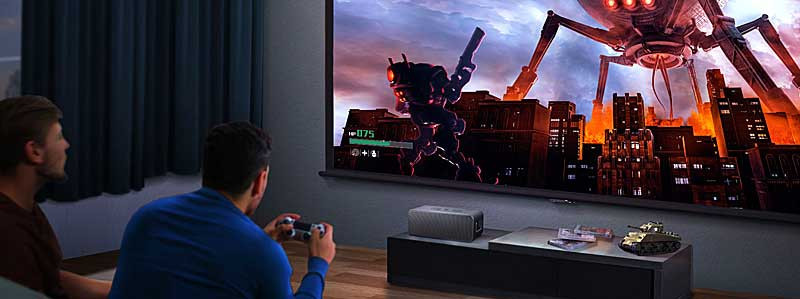
Introduction to Gaming Projectors
Finding what’s the best projector for gaming is crucial for an immersive and enjoyable gaming experience. While many gamers opt for traditional TVs or monitors, projectors offer a larger screen size and can create a more cinematic feel. However, not all projectors are created equal, and there are several factors to consider when choosing the best gaming projector for your needs.
When it comes to gaming projectors, there are a few key factors to consider. These include resolution and refresh rates, color accuracy and contrast ratio, input lag and response time, and lamp life and maintenance. Each of these factors plays a significant role in determining the overall gaming experience and should be carefully considered before making a purchase.
Understanding the Importance of Choosing What’s the Best Projector for Gaming
A gaming projector can greatly enhance the gaming experience by providing a larger screen size and a more immersive feel. With a projector, you can enjoy games on a massive screen, making you feel like you’re part of the action. The larger screen size also allows for a more social gaming experience, as multiple players can gather around and play together.
On the other hand, using a regular TV or monitor for gaming can have its drawbacks. TVs and monitors typically have smaller screen sizes compared to projectors, which can limit the immersive experience. Additionally, the image quality may not be as sharp or vibrant as what you would get with a high-quality gaming projector. This can result in a less engaging gaming experience and may even affect your performance in games.
Key Factors to Consider When Choosing What’s the Best Projector for Gaming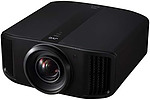
Input lag and response time: Input lag refers to the delay between when a command is inputted and when it is displayed on the screen. A low input lag is crucial for gaming, as it ensures that your actions are reflected on the screen in real-time. Similarly, a low response time ensures that fast-paced action is displayed smoothly without any blurring or ghosting.
Lamp life and maintenance: The lamp life of a gaming projector refers to how long the projector’s lamp will last before it needs to be replaced. It is important to consider the lamp life when choosing a gaming projector, as replacing the lamp can be costly and time-consuming. Additionally, consider the maintenance requirements of the projector, such as cleaning filters or replacing air filters, to ensure optimal performance and longevity.
The Top Gaming Projectors on the Market Today
There are several top gaming projectors on the market today that offer excellent performance and features. Some of the most popular gaming projectors include the Epson Home Cinema 5050UB, Optoma UHD60, BenQ HT3550, and Sony VPL-VW295ES.
The is a high-end gaming projector that offers 4K resolution, a high contrast ratio, and excellent color accuracy. It also has a low input lag and fast response time, making it ideal for gaming. The Optoma UHD60 is another top gaming projector that offers 4K resolution and a high contrast ratio. It has a low input lag and fast response time, making it suitable for fast-paced gaming.
The BenQ HT3550 is a mid-range gaming projector that offers 4K resolution, good color accuracy, and a high contrast ratio. It has a low input lag and fast response time, making it a great option for gaming. The Sony VPL-VW295ES is a high-end gaming projector that offers 4K resolution, excellent color accuracy, and a high contrast ratio. It has a low input lag and fast response time, making it ideal for gaming.
Comparing the Features and Performance of Popular Gaming Projectors
When comparing the features and performance of popular gaming projectors, it is important to consider factors such as resolution, refresh rates, color accuracy, contrast ratio, input lag, response time, lamp life, and maintenance requirements.
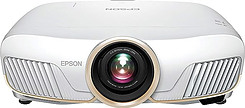
The Epson Home Cinema 5050UB offers 4K resolution, a high contrast ratio of up to 1,000,000:1, and excellent color accuracy. It has a low input lag of 28ms and a fast response time of 16ms. The lamp life is rated at up to 5,000 hours in Eco mode. The projector also features motorized lens shift, zoom, and focus for easy installation and adjustment.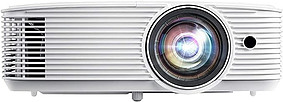
The Optoma UHD60 offers 4K resolution, a contrast ratio of up to 1,000,000:1, and good color accuracy. It has a low input lag of 33ms and a fast response time of 16ms. The lamp life is rated at up to 15,000 hours in Eco mode. The projector also features vertical lens shift and a 1.6x zoom for flexible installation.
The BenQ HT3550 offers 4K resolution, a contrast ratio of up to 30,000:1, and good color accuracy. It has a low input lag of 16ms and a fast response time of 8.3ms. The lamp life is rated at up to 4,000 hours in SmartEco mode. The projector also features vertical lens shift and a 1.3x zoom for easy installation.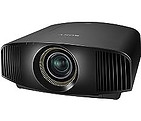
The Sony VPL-VW295ES offers 4K resolution, a contrast ratio of up to 350,000:1, and excellent color accuracy. It has a low input lag of 27ms and a fast response time of 14ms. The lamp life is rated at up to 6,000 hours in Eco mode. The projector also features lens shift and a 2.06x zoom for flexible installation.
Projector Resolution and Refresh Rates: How They Affect Gaming
Resolution and refresh rates are two important factors to consider when choosing a gaming projector, as they can greatly impact the gaming experience.
Resolution refers to the number of pixels that make up an image on the screen. Higher resolutions, such as 1080p or 4K, offer sharper and more detailed visuals. This is especially important for gaming, as it allows you to see fine details in the game world and enhances the overall visual experience.
Refresh rates, on the other hand, refer to how many times the image on the screen is refreshed per second. Higher refresh rates, such as 120Hz or 240Hz, result in smoother motion and reduce motion blur. This is particularly important for fast-paced games, as it allows for more fluid and responsive gameplay.
When choosing a gaming projector, it is recommended to opt for a projector with at least 1080p resolution and a refresh rate of 120Hz or higher. This will ensure that you get the best visual experience and smooth gameplay.
The Importance of Color Accuracy and Contrast Ratio for Gaming Projectors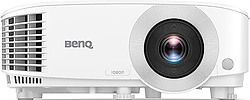
Color accuracy and contrast ratio are two important factors to consider when choosing a gaming projector, as they can greatly impact the visual quality of games. BenQ TH575
Color accuracy refers to how accurately the projector reproduces colors. A gaming projector with good color accuracy will display vibrant and true-to-life colors, enhancing the visual experience. This is particularly important for games that rely on color cues or have vibrant and detailed visuals.
Contrast ratio, on the other hand, refers to the difference between the darkest and brightest parts of an image. A higher contrast ratio results in more detailed and realistic images, with deeper blacks and brighter whites. This is especially important for games that have a lot of dark or bright scenes, as it allows for better visibility and immersion.
When choosing a gaming projector, it is recommended to opt for a projector with good color accuracy and a high contrast ratio. This will ensure that you get the best visual quality and a more immersive gaming experience.
Gaming Projectors vs. Gaming Monitors: Which is Better?
When it comes to gaming, there is often a debate between using a gaming projector or a gaming monitor. Both options have their pros and cons, and the choice ultimately depends on personal preference and gaming needs.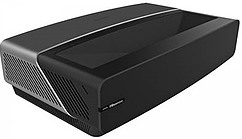
Gaming projectors offer a larger screen size compared to gaming monitors, which can create a more immersive and cinematic experience. With a projector, you can enjoy games on a massive screen, making you feel like you’re part of the action. Projectors also allow for a more social gaming experience, as multiple players can gather around and play together. Pictured is the Hisense 100 L5G XPR short throw gaming projector.
On the other hand, gaming monitors offer faster response times and lower input lag compared to gaming projectors. This is particularly important for competitive gamers who require quick and precise movements. Monitors also offer higher refresh rates, which result in smoother motion and reduce motion blur.
Ultimately, the choice between a gaming projector and a gaming monitor depends on your personal preferences and gaming needs. If you prioritize a larger screen size and a more immersive experience, a gaming projector may be the better option. If you prioritize fast response times and low input lag, a gaming monitor may be the better option.
Tips for Setting Up Your Gaming Projector for Optimal Performance
Setting up your gaming projector correctly is crucial for achieving optimal performance and the best gaming experience. Here are some tips to help you set up your gaming projector:
1. Optimal placement: Place your gaming projector in a location that allows for a clear and unobstructed view of the screen. Make sure to position it at the correct distance from the screen to achieve the desired screen size. Refer to the projector’s user manual for the recommended throw distance and screen size. Optoma GT5600 Ultra Short Throw Gaming Projector.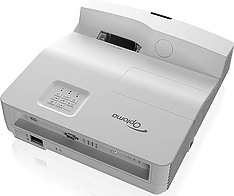
2. Lighting conditions: Consider the lighting conditions in the room where you will be using the gaming projector. Avoid placing the projector in direct sunlight or in a room with excessive ambient light, as this can wash out the image and reduce contrast. Use curtains or blinds to block out any unwanted light and create a darker environment.
3. Calibration settings: Take the time to calibrate your gaming projector to ensure accurate colors and optimal image quality. Most projectors offer built-in calibration settings or presets that can be adjusted to suit your preferences. Use calibration tools or software to fine-tune the image settings for the best results.
4. Audio setup: Consider the audio setup when using a gaming projector. Projectors typically do not have built-in speakers or may have limited audio capabilities. Connect external speakers or a sound system to ensure high-quality audio that complements the visual experience.
Conclusion: Choosing the Best Projector for Your Gaming Needs
Choosing the right gaming projector is crucial for an immersive and enjoyable gaming experience. Consider factors such as resolution, refresh rates, color accuracy, contrast ratio, input lag, response time, lamp life, and maintenance requirements when making a decision.
Ultimately, the best gaming projector for you will depend on your personal preferences, gaming needs, and budget. Consider the factors discussed in this article and take the time to research and compare different models to make an informed decision. With the right gaming projector, you can take your gaming experience to the next level. Please leave your comments, quetions or suggestions below. I truly want to hear from my readers.
This is a comprehensive guide on choosing the best gaming projector; it covers all the essential factors to consider. I’m leaning towards getting a gaming projector for a more immersive gaming experience, but I’m still unsure about the balance between screen size and input lag. Could you provide more insights on how to strike the right balance between these factors, especially for fast-paced games?
The 4k resolution of many newer gaming projectors provides an extremely immersive experience for gaming, well beyond that of a TV. The BenQ has the fastest response time 8.3 milliseconds and a input lag of 16 milliseconds. Input lag under 15 milliseconds is ideal and a response time of 1 to 5 milliseconds is ideal. Most people would notice a difference in response time between 1 and 100 milliseconds. In competitive gaming, you would begin to notice the difference.
Hello there when using a projector for gaming, I see in your article you mentioned using a portable sound system to get the best sound. Would the sound system that someone is using connect to the projector or would the gaming console provide outputs for this? Let me know how this would work. Thank you.
Connecting these devices to your console might seem daunting, but it’s simpler than you think. Most modern gaming consoles have HDMI ports that can be connected directly to projectors and surround sound systems. If not, there are always adapters available that can bridge the gap. Ideally the game console would connect to the surround sound receiver and the receiver would then connect to the projector. This setup enhances your gaming setup and can take your experience from enjoyable to unforgettable.
Thanks for your question and please come back to Audio Video Adventures as there is always more to see and learn.
The way you’ve meticulously analyzed the various aspects that contribute to a top-notch gaming projector choice is commendable. Input lag and image quality are indeed critical factors, and your comparison table makes it incredibly convenient to assess different models. Given the ever-evolving nature of gaming technology, do you think that projectors could eventually become the preferred choice over traditional monitors for serious gamers? Your insights on the future of gaming projectors would be truly enlightening. Your passion for audio and video adventures shines through, and I’m eagerly looking forward to more exciting content from you!
Thank you for taking the time to share your thoughts on my article, “What’s the Best Projector for Gaming?” I appreciate your kind words and are thrilled to hear that you found my analysis meticulous and helpful.
You’ve raised an interesting point about the potential of projectors becoming a preferred choice over traditional monitors for serious gamers. As technology continues to evolve, it’s certainly possible that we could see a shift in this direction.
Projectors offer a larger screen size and a more immersive gaming experience, which can be particularly beneficial for certain types of games. On the other hand, monitors typically offer higher resolution and faster refresh rates, which can provide a smoother and more responsive gaming experience.
As for the future of gaming projectors, I believe that advancements in technology will continue to improve their performance and make them an increasingly viable option for gamers. For instance, we’re already seeing projectors with lower input lag and higher refresh rates, which are critical factors for gaming.
Your enthusiasm for Audio Video Adventures is contagious, and I’m excited to have you as part of my community! I look forward to bringing you more exciting content in the future. In the meantime, please don’t hesitate to reach out if you have any further questions or comments.
At
Audio Video Adventures I offer all the latest in Projectors,
Receivers, Speakers, and accessories as well as everything else you
need for the ideal home theater experience.
Gene